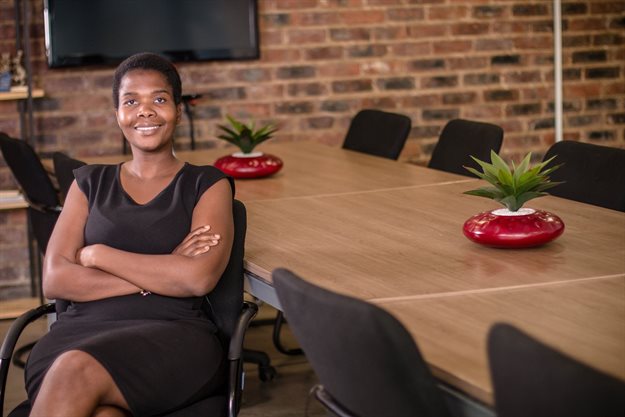After Grade 12 and 7 pupils headed back to school in the second week of June 2020, some of them have more than catching up with the academic year on their plates.

Lindiwe Nkuna, founder and CEO of Lindiwe Sanitary Pads
Research by Global Citizen shows that an estimated 3.7 million girls in South Africa cannot afford sanitary pads while according to the World Bank, proper menstrual hygiene enables women and adolescent girls to reach their full potential.
Furthermore, poor menstrual hygiene management has been shown to result in a sense of shame, anxiety, and embarrassment that contributes to absenteeism and poor performance at school.
A pack of pads in South Africa costs an average of R25. Typically, a girl goes on her period for seven days a month, which means each month she must have a minimum of two packs of pads and that costs R50 per month.
A lot of young girls enter a new menstrual cycle every month without really knowing when and how they will get their next pad. This uncertainty can immensely hamper the confidence and progress of a girl child, who, like her male counterpart, has an unequivocal right to
access education, but is often relegated to staying at home because of something as natural and consistent as her period.
Kagiso Nonyane 28 Mar 2019 However, ordinary South Africans can help fight menstrual poverty in the five following ways:
- Donate sanitary towels, even if it is just one pack to an NGO or any organisation that runs pad drive campaigns, such as the #1976girls by Lindiwe Sanitary Pads, which aims to manufacture and donate pads to 1,976 school girls across the country, or other similar initiatives.
- Sponsor a girl-child with monthly menstrual hygiene products.
- Raise awareness within your circles about those in need as this will help reach potential donors/sponsors and maybe have anonymous
pad drop-off and pick-up points to allow access for those in need.
- Liaise with menstrual hygiene product manufacturers for affordable bulk buying.
- Educate young and vulnerable women on the importance of menstrual hygiene and how to go about achieving it, which includes howto properly use pads and other sanitary products.
The last thing a young adolescent girl needs is to face societal pressures outside and still come back home to fight menstrual poverty
behind closed doors. We are the generation of changing the status quo, why not show menstrual poverty who is boss?































